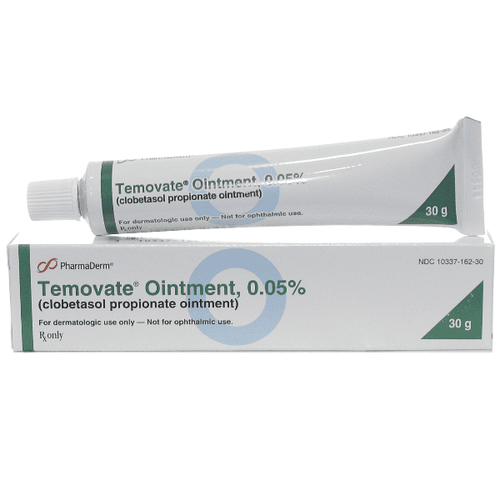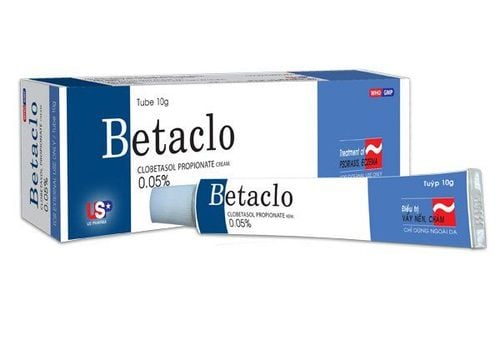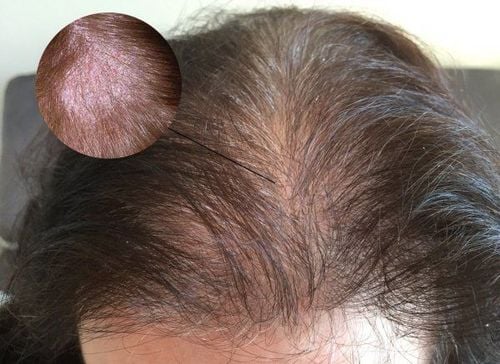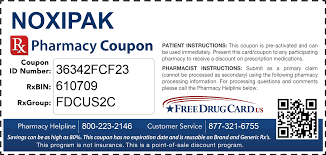This is an automatically translated article.
Psoriasis is an accumulation of skin cells that leads to the formation of scaly patches that cause pain and itching. The majority of people with psoriasis on the face also have psoriasis on the scalp and on other parts of the body.
1. What is facial psoriasis?
Psoriasis on the face is different from other parts of the body. Since the skin on the face is thinner and more sensitive, gentle treatments are needed. Facial psoriasis usually appears on your eyebrows, the skin between your nose and upper lip, the forehead, and the hairline.
Like psoriasis on other parts of the body, there is no clear cause of facial psoriasis. Researchers have only identified genetic factors and the immune system both play a role in the development of the disease. Psoriasis and psoriasis flare-ups can be triggered by factors such as:
Stress Sun exposure and sunburn Fungal infections Tobacco use Heavy alcohol use

Thuốc lá làm trầm trọng hơn những triệu chứng của bệnh
2. Symptoms
Symptoms of the disease appear depending on which part of the face has psoriasis:
When psoriasis is on the eyelids, the scales will cover the eyelashes. The edges of the eyes may be red and brittle. Psoriasis of the eyes is often dry, inflamed, irritated, and difficult to see. Psoriasis of the ears causes scabs to build up and can block the ear canal, causing hearing loss. Usually, psoriasis does not affect the inner ear. Oral psoriasis manifests as a white and gray appearance on the gums or tongue, inside the nose, and on the lips.
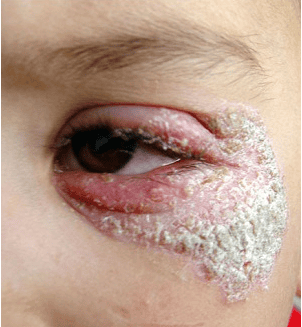
Vẩy nến ở mắt gây kích thích và khó nhìn thấy
3. Treatment of psoriasis on the face
There are several main types of treatments specifically for facial psoriasis. The type of treatment will depend on which part of the face is affected by psoriasis.
3.1 Treatment of facial psoriasis with drugs
Low-level corticosteroids: These are medications that come in ointments, creams, lotions, and sprays that reduce redness and swelling in psoriasis areas. Doctors usually prescribe it to patients every few weeks. If you use them for longer, they can make your skin thin, shiny, and bruise easily or cause it to stretch and develop new blood vessels. Synthetic vitamin D: Used as calcipotriol ointment or cream (Daivonex, Sorilux), it slows the growth of skin cells. But it can also irritate your face. Calcitriol (Rocaltrol, Vertical) is a new synthetic vitamin D drug for psoriasis that some studies suggest may be better for sensitive skin. Use Retinoids: Retinoids are found in tazarotene (Tazorac) gel, which helps remove scales and can reduce inflammation. But it also has the side effect of causing skin irritation. Pimecrolimus (Elidel) and tacrolimus (Protopic): These are two FDA-approved medications for eczema. Some dermatologists recommend this medication to treat psoriasis on the face. The FDA also recommends that patients only use them for a short time because several studies have demonstrated a link between the drug and cancer risk. Crisaborole ointment (Eucrisa) is another FDA-approved topical medication for eczema that can reduce inflammation. It may cause temporary skin burning or stinging sensation when applied. Coal tar: Derived from coal, this treatment comes in shampoos and creams. It can heal psoriasis and can also make your skin feel better and relieve itching, scaling, and dryness. Salicylic acid: This medication is available over-the-counter and also available by prescription. This is a remedy that can help get rid of scabs. Doctors can use it with steroids or coal. If these treatments don't help, ask your doctor if you should take prescription medications or injections for your condition.
Sử dụng dầu gội, kem có nguồn gốc từ than đá tốt cho việc điều trị bệnh vẩy nến
3.2 Methods of treating facial psoriasis with light
Another option is to treat facial psoriasis with ultraviolet (UV) light, called phototherapy, to slow skin cell growth. Some types of phototherapy such as:
Sunlight treatment ie receiving ultraviolet rays from sunlight or artificial light. UVB phototherapy is receiving UVB rays from an artificial source. Narrowband UVB phototherapy is a newer type of UVB treatment. Goeckerman therapy is a combination treatment of UVB with coal tar. Psoralen plus ultraviolet A (PUVA) is a combination of Psoralen, which makes your skin more sensitive to light and UVA treatment. The Excimer laser is a controlled UVB beam that treats a small area.
3.3 Area-specific treatments
Eyelid
To treat this area, the doctor may recommend the following drugs:
Corticosteroids specifically to treat dilatation. But don't overdo them. If they get into the eye, it can lead to glaucoma or cataracts. The eczema medications ointment crisaborole (Eucrisa), pimecrolimus (Elidel), or tacrolimus (Protopic). They do not cause the side effects of steroids. Be careful when you treat psoriasis around the eyes because the skin on the eyelids is very delicate and easily damaged. Psoriasis of the eye is very rare. But if you have psoriasis on your eyes, you may need antibiotics to treat an eye infection if you get an infection.
Ear area
Psoriasis medications can be dangerous to the eardrum, so use caution when applying these medications. Your doctor may recommend treatment with medications such as:
Prescription corticosteroids to be dropped into the ear or applied externally in the ear canal Calcipotriene or tazarotene usually mixed with corticosteroid creams or ointments Mouth and nose
Your doctor may recommend recommend the use of medications such as:
Steroid creams or ointments made for wet areas Wash frequently with saline solution for pain relief Low level corticosteroids such as hydrocortisone 1% Pimecrolimus or tacrolimus ointment
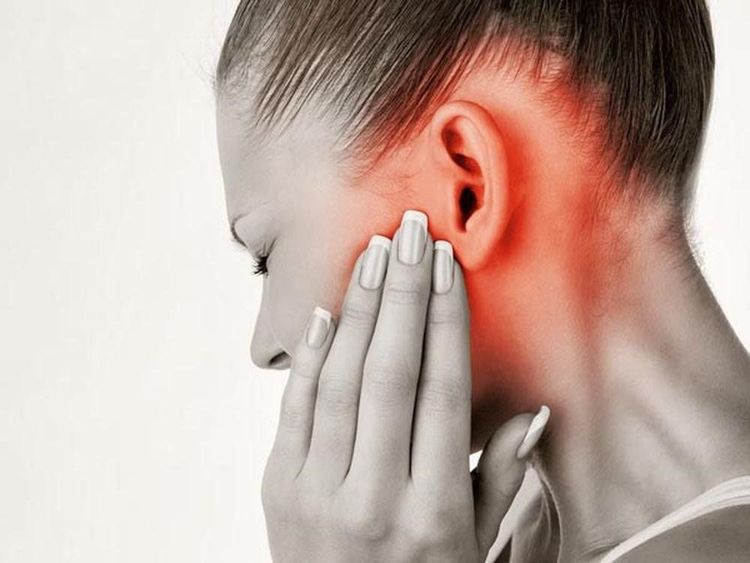
Thuốc trị bệnh vẩy nến có thể gây nguy hiểm cho màng nhĩ
4. Self-care for skin with facial psoriasis
Along with taking medication recommended by your doctor, you can take care steps at home to help manage your psoriasis, including:
Reduce stress. Consider meditation or yoga. Avoid triggering disease outbreaks. Track your diet and activities to see if you can identify factors that lead to flare-ups. Does not affect the psoriasis area. Acting on scabs often makes them worse or starts a new rash. Use a moisturizer. Having your doctor recommend a moisturizer can help relieve dry skin and flakes on your face. Emotional support. Sometimes, having patches on your face can make you feel self-conscious and even depressed. Your doctor may have a recommendation for a support group or psychologist who can help to get rid of that feeling.

Tập yoga có lợi cho việc giảm căng thẳng
5. How to Apply Psoriasis on Face
Here are a few basic tips:
Use small amounts. Be careful when you apply creams and ointments around your eyes. Some treatments can irritate them. Follow your doctor's instructions about taking your medication so that side effects can be prevented, especially with steroids. Ask your doctor if you can use makeup to hide the psoriasis on your face.
Psoriasis on your face can be uncomfortable. See your doctor to determine the type of psoriasis you have for advice on a suitable treatment plan. Treatment may include medical care and home treatment. Your doctor can monitor and treat psoriasis on your face.
Vinmec International General Hospital is one of the hospitals that not only ensures professional quality with a team of leading medical doctors, modern equipment and technology, but also stands out for its examination and consultation services. comprehensive and professional medical consultation and treatment; civilized, polite, safe and sterile medical examination and treatment space. Customers when choosing to perform tests here can be completely assured of the accuracy of test results.
If you have a need for consultation and examination at the Hospitals of the National Health System, please book an appointment on the website for the best service.
Articles refer to sources: healthline.com, .webmd.com





